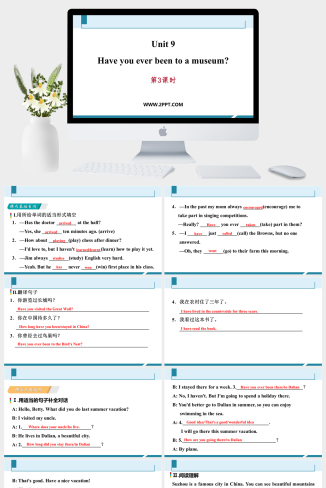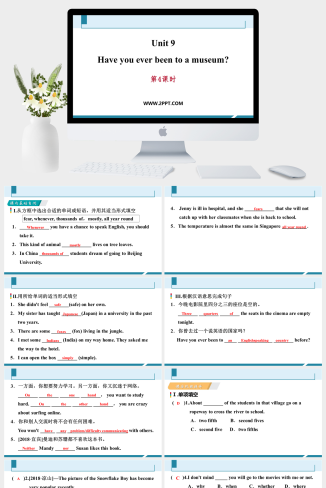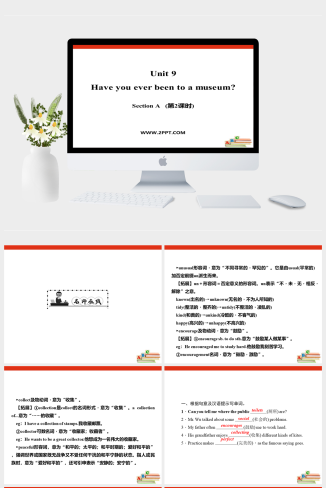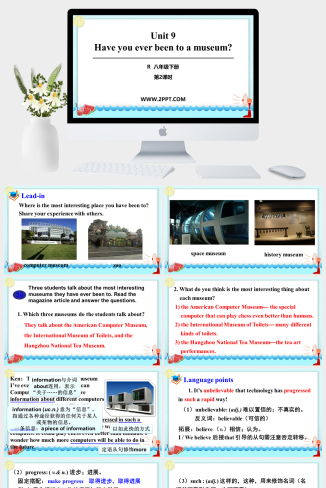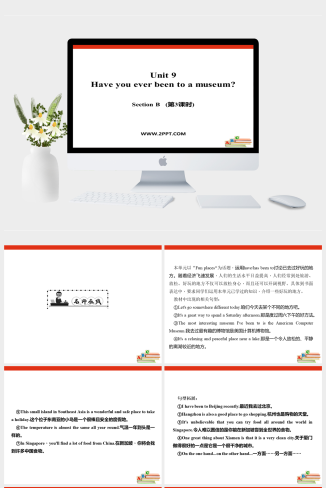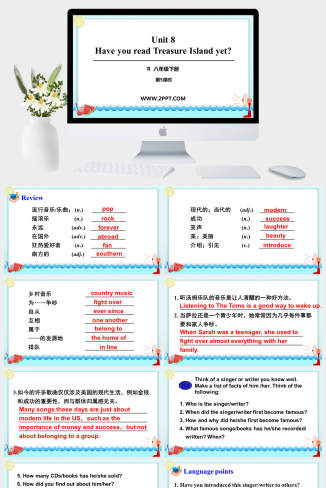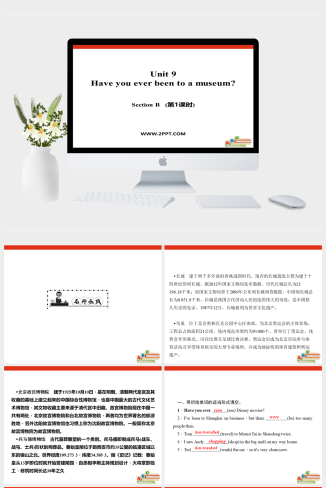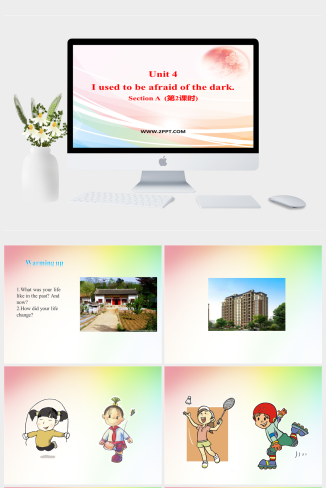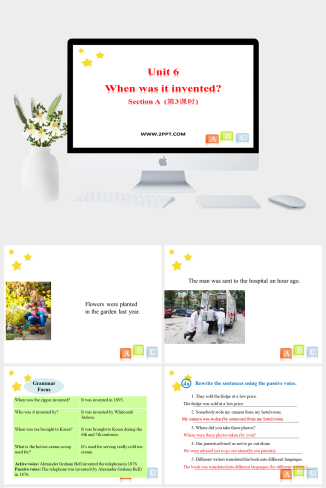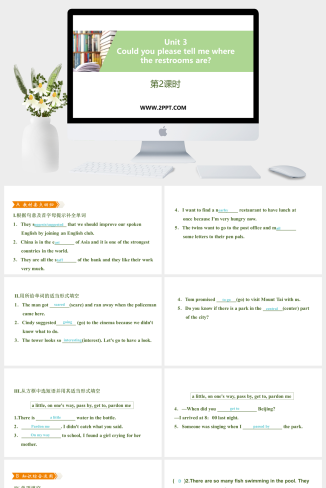
1.I was scared at first,but shouting did help.
起初我好害怕,但大声喊还很管用。(教材第19页)助动词did在句中起强调作用,用来表达说话者的一种强烈的感情。did要重读,后接动词原形,意为“确实,一定,务必,的确”等。do随主语的人称、数和句子的时态的变化而变化。
2.Excuse me,could you tell us when the band
starts playing this evening?打扰一下,你能告诉
我们今天晚上乐队什么时候开始演奏吗?(教材第19页)start doing sth.意为“开始做某事”。
e.g.:He started working last week.
【拓展】作“开始”讲时,start与begin二者可
互换,但以下几种情况只能用start,不能用begin。(⑴表示“创办”“开设”时。
e.g.:He started a new shop last year.(2)表示“(机器)开动”时。
e.g.:Can you start the car?(3)表示“出发”“动身”时。
e.g.: We started early in the morning.
3.I suggest Water City Restaurant in Water World.我建议去水上世界的水城餐馆。(教材第19页)suggest及物动词,意为“建议;提议”,名词形式为suggestion,意为“建议;提议”。其用法为:

